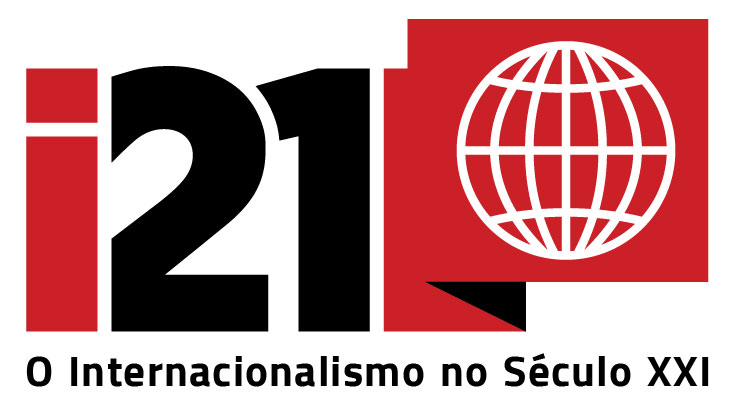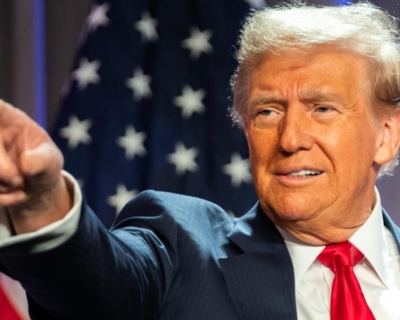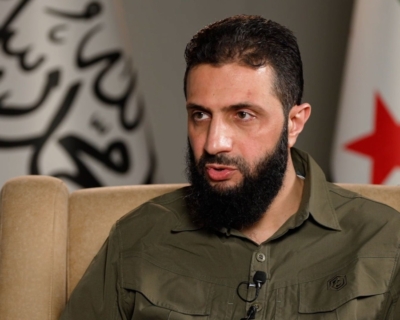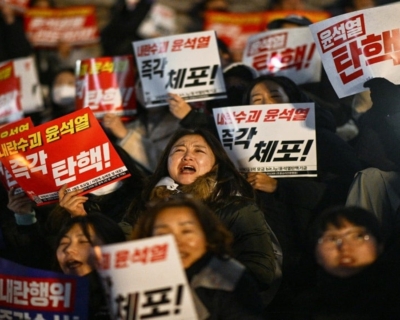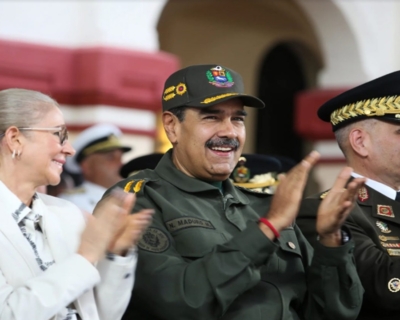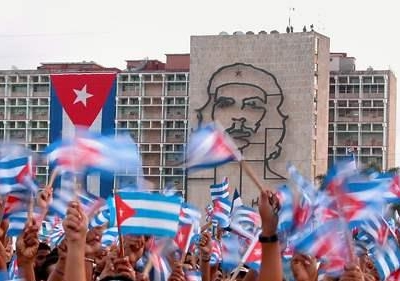Lenin, the genius of revolutionary praxis
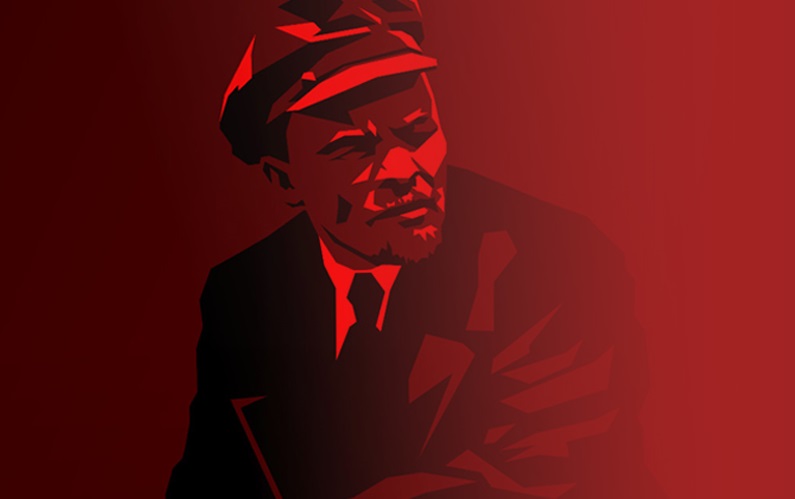
PCdoB’s tribute to the 150th anniversary of Lenin’s birth.
The 22nd of April 2020 marks the 150th year since the birth of Vladimir Ilyich Ulianov, leader of the Russian Revolution, known for his famed nom de guerre Lenin. More than any other personality in History, Lenin incarnated the Marxist concept of “revolutionary praxis”, systematizing and developing the theory to guide and organize a determined and consequential political action, which deeply transformed the world we live in.
Lenin was the great architect and builder of the revolution that offered Humanity its first socialist experience in the early 20th century, generating impacts that reverberate to this day.
Beyond structuring a world system in alternative to capitalism, the Soviet state —erected under his guidance and leadership— gave significant contributions to human civilization. Among those, we can highlight the expansion and promotion of social rights (such as the women’s rights and those of social and national minorities), the epic defeat of Nazi-Fascism in World War I, and the active promotion of decolonization processes that have reconfigured the international system.
The global repercussion of the Russian Revolution led by Lenin encouraged the creation of Communist Parties in all regions throughout the planet. In our homeland, it inspired the foundation of the Communist Party of Brazil on the 25th of March 1922, constituting the longest-living political party still active in the country. PCdoB is proud of its formation’s Leninist matrix and seeks to situate its development within the framework of the vast theoretical and political legacy left by this prodigious revolutionary leader.
The foundations of this vast legacy are based, precisely, on rescuing the essential and deeply dialectical nature of Marx’s thought. Lenin opposed those who tried to turn the Marxist theory into a closed system of dogmatic truths. He stressed that it was actually a guide for the study and comprehension of concrete social reality, to be enriched and updated based on this reality’s own development.
And he sought, continuously and consistently, to extract the consequences of this theoretical development in order to guide the actions for the transformation of social reality. In addition to promoting an important systematization of Marx’s thought, that endeavor enabled him to update and develop Marx’s very theory, facing the crisis that affected the Marxist/socialist movement in the early 20th century due to the transformations operating in the capitalist system by then.
By systematizing Marx’s theory of the state, Lenin reaffirmed the identification of the class character inscribed in the institution of political power, and the need for the working people to conquer this political power and reset it (based on the broadest social democracy possible) to make way for the systemic transition to socialism. But the great Russian revolutionary leader also noted that consciousness regarding this need would not emerge “spontaneously” among the workers, who tended to organize and mobilize around corporative demands for partial reversion of the intensity of the exploitation of their labor. For Lenin, only the workers’ constant and active engagement in the political struggle could awaken a broader consciousness of this society’s problems and needs. Therefore, according to him, it was essential that the workers were organized in political parties in order to act and exert influence over the course of political struggle in each country, broadening their consciousness’ horizons and accumulating forces in the process. The concrete forms of this party organization would depend on the conditions of action and struggle in each country.
Hence, Lenin has enriched and developed the theoretical understanding, originated in Marx, that political action is the key to social emancipation. In his view, this required the adoption of policies of very wide and flexible alliances by revolutionary parties, in accordance to the identification of the main contradiction in each stage of the political process, and seeking to unite the highest possible number of forces to isolate and defeat the main enemy at that stage (considering the Russian Revolution’s conditions, it was particularly important to establish alliances with forces that were representative of the peasantry, which was broadly majoritarian in the country). Therefore, he offered a theoretical key that was crucial for situating and orientating the strategic dispute for the political hegemony in society, according to the concrete historical conditions of each social-economic formation.
Another salient and fundamental theoretical contribution made by Lenin to the Marxist theory was the identification and systematization of the transition from capitalism, by the end of the 19th century, to a phase of broad predominance of monopoly in the central capitalist powers, which was a consequence of the “law of concentration and centralization of production” already noted by Marx.
According to Lenin, it was precisely that transition that sustained those powers’ brutal colonial expansion in Asia, Africa and Latin America in that period. Therefore, his systematization became known as the “theory of imperialism”. In his view, the political economy of capitalism in the new monopolist phase was dominated by the force of finance capital, which sought to guarantee access to economic territories for exclusive or privileged exploitation world-wide, through open colonization or political subordination.
But Lenin did not just systematize the distinctive characteristics of the new monopolist phase of capitalism. From this theoretical systematization, he extracted the strategic and tactic consequences for the revolutionary forces’ political action. He concluded that, under new conditions, movements for national emancipation in the colonies and in the dependent countries of Asia, Africa and Latin America would become a crucial vector in the revolutionary struggle around the world. Hence, he argued that the socialist parties should incorporate in their programs the promotion of the “peoples’ right to self-determination”, a proposition met with strong resistance from various sectors in the European left at that time.
Lenin noted, moreover, that the advent of the monopolist phase of capitalism created a dynamic of “uneven development” in the international system. The accumulation of capital in the countries where finance capital was most concentrated and developed was ever more based on the extraction of income from the productive activities realized in other countries and regions. This growingly “rentier” and “parasitic” nature of accumulation led to the decomposition of economic dynamism in the system’s core and to the continuous emergence of more dynamic, competing economic poles in other countries and regions. These new poles, for their part, began to question the structures of hegemonic domination by the power that was in economic decline. Therefore, according to Lenin, tensions between these powers were inevitable in the “age of imperialism” and the international system would become growingly unhinged and turbulent, prone to conflicts and wars. It would be up to the revolutionary parties to politically exploit the tensions and contradictions between the central capitalist powers in order to advance their own agendas of national and social emancipation, while developing a strong internationalist mobilization against the imperialist war and for peace.
Lenin’s bold development of the Marxist theory —and his firm and consistent disposition to extract political consequences from this theoretical development— was the base of the Russian Revolution’s triumph and of the push that the revolution gave to the forces of social transformation throughout the world since then. His contributions to the Marxist thought are, indeed, vast, and include works of great depth and diverse topics, such as The Development of Capitalism in Russia; What is to be done?; Materialism and Empirio-criticism; Imperialism, the Highest Stage of Capitalism; The State and Revolution; Left-Wing Communism: An Infantile Disorder, among many others. These works qualified generations of communists, socialists, nationalists, democrats and revolutionaries in Brazil and throughout the world.
PCdoB is an inheritor of the theoretical and political legacy left by this genius of revolutionary praxis, whose propositions continue to offer keys that are crucial for facing the challenges of the 21st century. But we know that the greatest tribute we can pay Lenin in the 150th anniversary of his birth is to follow his example and develop the Marxist theory in an open, creative and non-dogmatic way, in order to understand the world’s transformations throughout the last century —from the new productive patterns of capitalism to the very collapse of the Soviet Union and the effulgent emergence of the People’s Republic of China— and to unveil the paths to promote a New National Development Plan for Brazil and build a socialism that has the face of the Brazilian people.
Lenin lives, long live Lenin!
22 April 2020
National Executive Committee of the Communist Party of Brazil (PCdoB)

